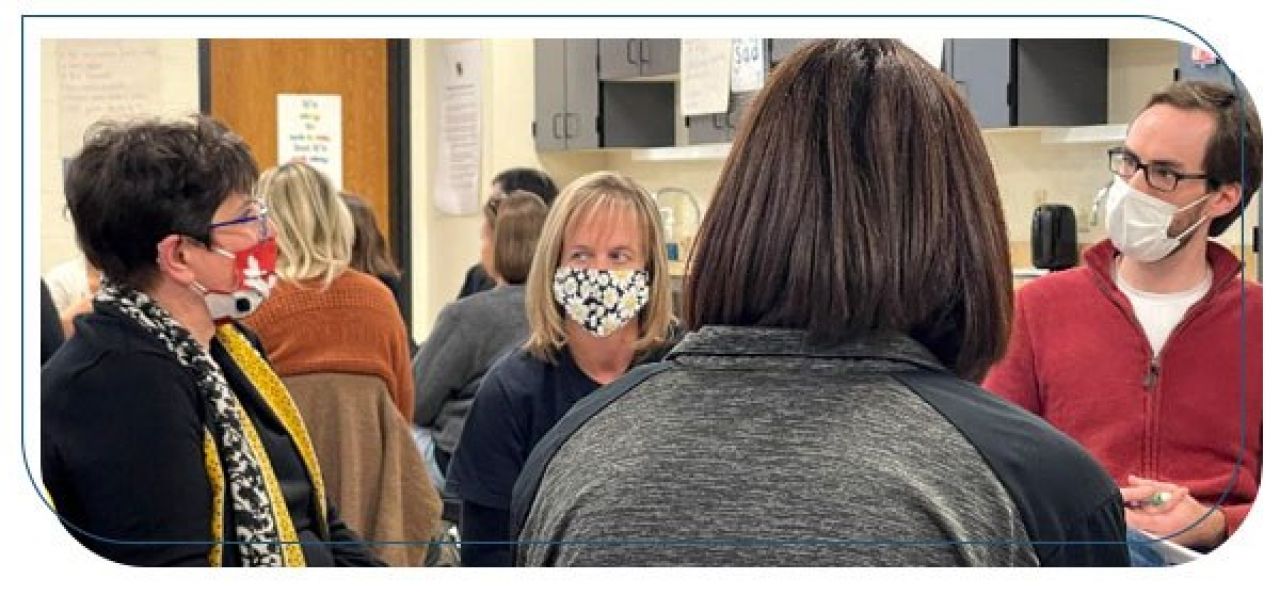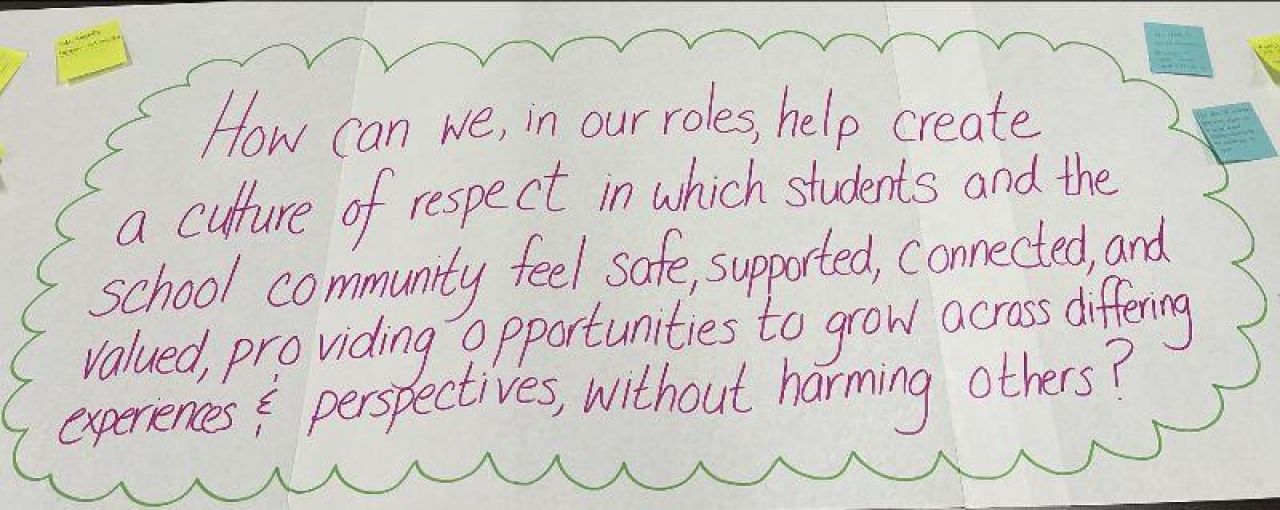Information Communication Technology for Development (ICT4D) Consortium
Initiative, Red Lion Area School District join forces to create effective professional learning for K-12 educators
By Danielle Butville

On an unseasonably warm afternoon just before Winter Break, 20 educators in York County's Red Lion borough trickled into Red Lion Area Senior High School. Conversations about parent emails, COVID protocols, and end-of-semester grading filled the air. They stood in a circle for the afternoon's opening activity: sharing stories about some of the best gifts they'd ever received.
As the educators told their stories, the tension eased, and laughter erupted. They have worked hard in collaboration with Initiative pedagogy experts to build this community. It helps them overcome challenges posed by the pandemic and the instruction of difficult topics.
Teachers and administrators who participate in the Initiative's 2021-22 program—a partnership with the Red Lion Area School District—represent a wide range of subject areas and specialties across Grades K-12. They've met regularly since July to engage in cycles of inquiry around difficult topics.
In the summer and early fall, participants shared the difficult topics they faced in their classrooms and schools. Betsy Howie, a teacher at Locust Grove Elementary, found challenges cropping up unexpectedly.
"I was talking with my first graders about the election, and they started expressing opposing views and having very explicit racial conversations at age 6," said Betsy. "I needed a way to unpack this difficult topic." Through partnering with the Initiative's content and pedagogy experts, Betsy is gaining efficacy in honoring student voice while facilitating civil discourse.
These initial conversations revealed that educators across the district faced similar challenges, whether teaching the Holocaust in high school or literacy in elementary school.
Participants created a shared wondering to guide their first cycle of inquiry:

“How can we, in our roles, help create a culture of respect in which students and the school community feel safe, supported, connected, and valued, providing opportunities to grow across differing experiences and perspectives, without harming others?” Credit: Paris Palmer
Participants also generated and refined individual wonderings about their practice. They collected data and met every few weeks to discuss and reflect on the process.
Towanda Lemon-McKie, a sixth-grade writing and science teacher, inquired about supporting children who had experienced trauma. This prompted her to conduct more regular check-ins with her students.
"By collecting data," she said, "I was finding out things that students were dealing with or thinking about at home, sometimes from students that I never would have guessed."
The Initiative's team of pedagogy experts facilitated the fall inquiry cycles, providing research-based structures and guidance for the educators to analyze their data and take informed action. The participants also completed the Initiative's Trauma-Informed Practices online module and used their learning about educational equity and trauma to fuel their inquiries.
Experiencing cycles of inquiry prepared participants for the spring semester, when they're beginning to engage their students in inquiry around the difficult topics in their curriculum, school, and community.
On that warm December afternoon—a time when it would have been easy to check out—the atmosphere was electric as participants shared the insights they had gleaned from their fall inquiries. They leaned in and reflected on how inquiry around difficult topics could improve their practice and students' learning.
"We all started with individual ideas, so when we created our group wondering, I was skeptical of how it would relate back to our personal inquiries," said Danielle Kabacinski, an ESL teacher who works in schools across the district. "But now, as we sit here together, I realize it is all falling into place. We're all in this together, and it fits all of our authentic goals."

